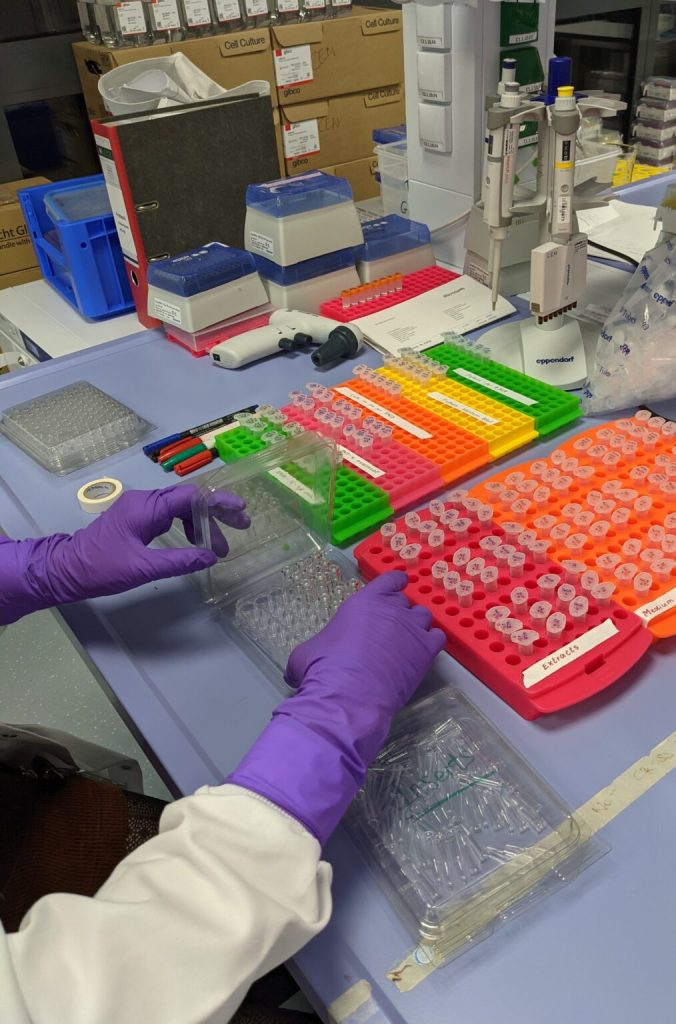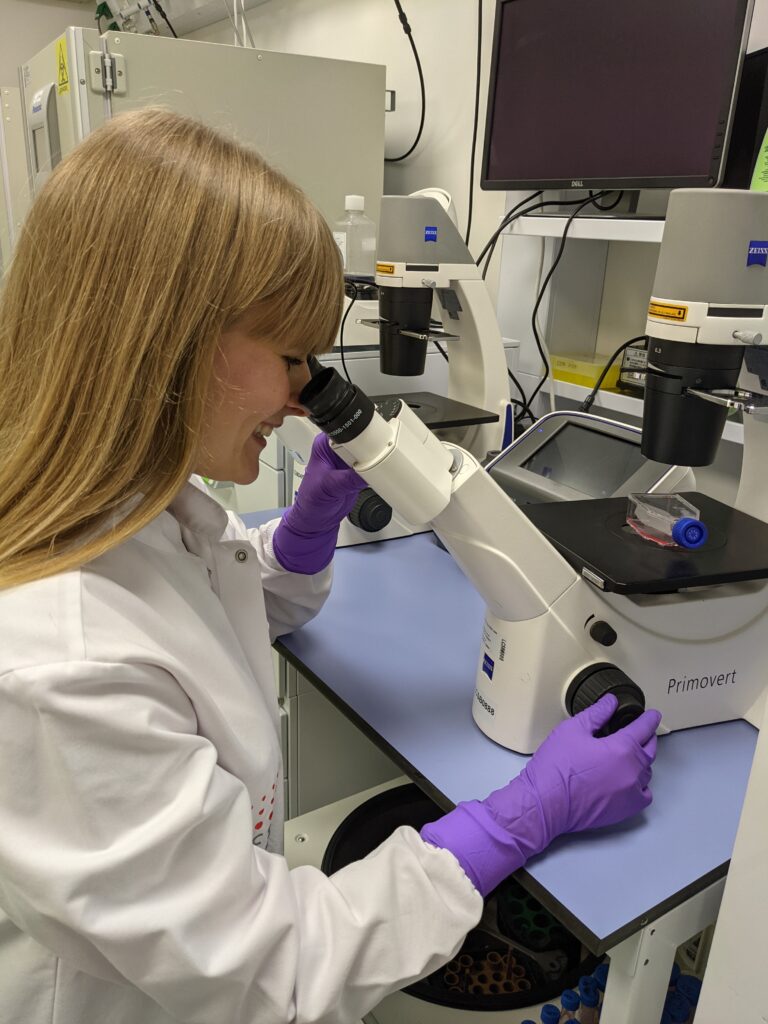In conversation with our young researchers: Pauline Mencke
21 May 2021
Neurodegenerative diseases and cancer affect millions of people worldwide. Translational neuroscientist Pauline Mencke has chosen Luxembourg to study a gene that is involved both in Parkinson’s disease and the brain cancer Glioblastoma multiforme.
Pauline Mencke, 3rd year PhD candidate at the Luxembourg Centre for Systems Biomedicine (LCSB), aims to identify common mechanisms shared by the diseases. Her research would allow for the identification of a common pathway and potential drug target, ultimately improving the outlook for patients.
What do Parkinson’s disease and Glioblastoma multiforme have in common?
Pauline Mencke strives to understand the gene PARK7 encoding the protein DJ-1 to find common disease mechanisms
According to the biologist, the etiology is not yet fully understood because of the complexity and heterogeneity of PD. This is why there is no cure for the disease.
“In the same manner, GBM is a very heterogeneous and complex disease, meaning that it is very difficult to identify individual causes and treatment strategies that are tumour specific,” explains Pauline Mencke.
Pauline Mencke

In the last years, there has been increasing evidence that a specific gene encoding the protein DJ-1 is associated with both diseases. As part of her PhD project, biologist Pauline Mencke is studying the role of DJ-1 in more detail:
“We know that genes that are upregulated in cancer are frequently downregulated in PD and vice versa.”
Pauline Mencke
Interestingly, increased expression of some PD-associated genes like one called ‘PARK7 (DJ-1)’ influence cell proliferation and metabolism, meaning they support tumorigenesis – the formation of tumours.
“In PD, the effect reverses, as loss of DJ-1 protein function causes PD. In the scope of my PhD project, we are simultaneously studying the role and function of DJ-1 in PD and GBM to better understand its role in both conditions.”
Pauline Mencke
Making collaboration a source of progress
Collaboration is integral to Pauline’s studies. Indeed, she cooperates with several scientists for her project, both in Luxembourg and abroad.
Case in point: the PD-patient derived iPSCs [stem cells] that she is using for her project were obtained from fibroblasts from a collaboration with Prof. Dr. med. Vincenzo Bonifati from Rotterdam.
“For the CRISPR Cas9 mediated correction of the mutation in the iPSCs, I profited from the expertise of Dr. Javier Jarazo from the LCSB. I am also collaborating with ATTRACT Fellow Dr. Johannes Meiser from the LIH, who is helping me through his expertise in metabolomics.
Pauline Mencke
In collaboration with Dr. Carole Linster from the LCSB, Pauline strives to identify enzymatic functions of DJ-1.
Pauline is also working hand in hand with Prof. Dr. med. Michael Platten from the German Cancer Research Center (Deutsches Krebsforschungszentrum, DKFZ) in Heidelberg.
Why Luxembourg as a research destination?

“I have studied molecular medicine in Regensburg, Germany, and from the beginning of my studies, I was interested in translational medicine, studying causes and mechanisms of diseases to help to identify better treatments. During my master studies in Luxembourg, I met Prof. Dr. med. Rejko Krüger and learned about his excellent research. This is why I decided to do my PhD in his highly interdisciplinary translational group.”
Pauline Mencke, 3rd year PhD candidate at the Luxembourg Centre for Systems Biomedicine (LCSB). Her PhD is supported by an AFR grant from the FNR.
Read more about the Luxembourg Centre for Systems Biomedicine.
Extracts from Spotlight on Young Researchers: The role a gene plays in neurodegeneration and cancer








